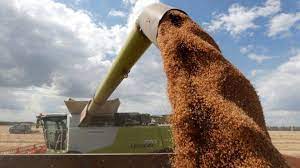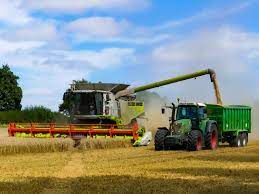Britain’s inflation jumped back above 10 percent in September as climbing food prices tightened a cost-of-living squeeze fueled by sky-high energy bills. The figure matched the record high seen in July and surpassed analysts’ central forecast of 9.9. The Impact of Rising Food Prices on Farmers.
Families are struggling to cope and the New Economics Foundation has called on Threadneedle Street not to add to pressure by raising interest rates again this week. The Impact of Rising Food Prices on Farmers.

What is Inflation?
The most common measure of inflation is a change in the price index, such as the CPI or RPI.
Rising prices are a problem for the economy because they distort incentives and increase costs. For example, supermarkets class over 90% of their expenses as overheads and therefore set prices to cover those overheads plus a profit margin. However, this means other members of the supply chain that can’t pass on such high overheads – such as farmers or growers, bakers, or energy producers – must pay more for inputs such as fuel and fertilizer.
Inflation also depends on expectations, with people and firms adjusting their behaviour in response to a period of higher inflation. For example, workers might demand higher wages so that they can keep their purchasing power above inflation or firms may raise prices to recoup the increased cost of inputs. This can lead to a feedback loop where people and firms adapt their spending habits to the new normal, leading to more inflation.
Energy
While inflation slowed to 8.7% in April, a level well below double digits and the target set by Threadneedle Street, it is still high enough to make life difficult for millions of mortgage holders and householders. The latest Office for National Statistics figures show that inflation is continuing to rise faster than wages, putting pressure on the government and prompting the prospect of further interest rate hikes.
The biggest upward contributions to the inflation figure come from housing and household services (including electricity and gas), recreation and culture, and alcoholic beverages and tobacco.
Workers have reacted by staging strikes in many sectors, including rail workers who brought the country to a standstill this summer, postal workers, and garbage collectors. Some have even backed a campaign for households to boycott their energy providers in the hope of forcing them to cut prices.
Food
The Office for National Statistics (ONS) reported that UK inflation, as measured by the Consumer Prices Index including owner-occupier housing costs (CPIH), remained steady in May at 8.7%. This was lower than expected and it means that the rate has now fallen below double figures.
Food prices have risen significantly, driven by the worst sugar beet harvest in Europe in 20 years and poor crops in other countries like Brazil. Rising energy prices have also contributed to the higher cost of a weekly shop.
High levels of inflation mean your money doesn’t stretch as far, so it’s important to keep an eye on the latest inflation rates. But it’s not just prices that are increasing; wages have not kept pace with inflation, putting pressure on households. Investing in assets that rise with inflation can be a good way to protect your savings.
Fuel
The UK’s inflation rate has slowed down since hitting double-digits last year, but the country remains significantly above both the US and eurozone. It’s also more than twice as high as the Bank of England’s target.
The biggest upward contribution to the inflation rate comes from electricity, gas and other fuels.
This is putting pressure on households, especially those on low incomes. The number of people using food bank charities is rising, with the Trussell Trust distributing almost 3 million emergency supplies in the year to March 2023. Increasing inflation is also making it more difficult for savers to get a decent return on their investments, as they may not be able to keep pace with rising costs. This is why it is important to diversify your savings by holding different assets, such as stocks and shares, property and commodities needs read more hear.




















